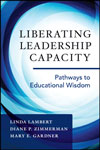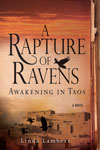imagination
Newer Entries »Finding a narrator smarter than you are!
Monday, June 23rd, 2014
This was a goal, a desire of prolific writer Norman Mailer. I have been thoroughly entranced by the idea of finding a smarter alter ego. Even the omnipotent narrator falls short because, while she knows everything, it is everything that you as author know and think. So how does an author transcend self? Find that iconic self that challenges your more conscious self. Is she hidden inside, in the nooks and crannies of those silken gray folds? Mailer made an easy choice. In his last novel, Castle in the Forest, his narrator was the Devil. Ah.
Answering your own questions makes you smarter.
Tags: Devil, narrator, Norman Mailer
Posted in creativity, Fiction, imagination, writing | No Comments » | Leave a Comment
“The Art of Setting the Senses on Edge”
Sunday, June 8th, 2014
That’s how Anthony Tommasini titled his excellent column on music and dissonance (NYT, June 1, 14). In reference to Milton’s use of “barbaric dissonance,” the author waded–no–jumped right into the many understandings of dissonance from politics, to music, to psychology. I had been the most familiar with cognitive dissonance as that state of internal tension arising from contradictions, confusions, that we must make right. Those eternal puzzles that cause our heads to spin. Problems that leap at us during the night and steal our sleep away.
Well, Tommasini’s discussion of the clashing, barbarous, discordant sounds in music are not unlike those tight-wire puzzles in novels. Such cases of dissonance indeed set “the senses on edge.” Here are a few cases that occur to me at the moment when the author:
1) dangles a subtle unknown before the reader with just a brush of puzzlement. What could this mean? Lead to?
2) two barbarous acts confront the reader, yet the narrator isn’t aware of the contradiction. You want to cry out–look, can’t you see!
3) a fine mesh of small descriptors about a character hints at impending transformation–or disaster! We don’t know which.
4) a directly-declared, barbaric crime (Sherlock-style), yet you know that there will be nothing direct or obvious about the resolution. Arthur Conan Doyle makes sure of that.
Next up: Norman Mailer’s hunt to find a narrator “more intelligent than he was.”
Linda
Tags: Anthony Tommasini, Arthur Conan Doyle, music
Posted in creativity, Fiction, history, imagination, non-fiction, writing | No Comments » | Leave a Comment
The Cairo Codex wins 3 awards
Wednesday, May 7th, 2014
The Cairo Codex, has now won three prestigious 2014 awards: the Silver Nautilus Award for fiction, the Bronze International Independent Publishers Award for historical fiction, and was a finalist in the USA Best Books Award competition. The Cairo Codex, a riveting novel of suspense, politics, religion, and romance is set in Egypt during the years 2 and 2007. Anthropologist Justine Jenner discovers the diary of Mary of Nazareth, the mother of Jesus, in an ancient crypt during a major earthquake. She barely survives with the codex and her life, both threatened by the Muslim Brotherhood.
I became enthralled with Egypt as a young girl when my mother enchanted me with tales of her own alleged reincarnation from Egyptian royalty. In 1989, I became a State Department Envoy to Egypt and began two decades of exploration of its culture. I’ve written several internationally-recognized books in the field of leadership, none as fun as fiction! Before fiction, I was an administrator, history instructor, international consultant, and am professor emeritus at California State University, East Bay.
The second novel in The Justine Trilogy, The Italian Letters, will be released this fall (I know, I know, I said July!) and the third novel, A Rapture of Ravens, in early 2015.
Tags: awards, codex, Egypt, fiction, Jesus, literary, Muslim, politics, trilogy, Virgin Mary, writing
Posted in creativity, Education, Egypt, Fiction, history, imagination, Leadership, Nautilus Award, trilogy, writing | No Comments » | Leave a Comment
The Nautilus Award–What is it? Why Nautilus?
Sunday, April 27th, 2014
This week our grandson, Jered, was quick to suggest the origin of the Nautilus Award. Of course, I realized. Jules Verne’s Twenty Thousand Leagues Under the Sea tells the story of Captain Nemo and his submarine, the Nautilus. Verne is revered for his imagination, innovation, creativity.
My historical novel, The Cairo Codex, won a 2014 Silver Nautilus Award for Fiction. The awards will be announced on May 1. The awards represent “Better Books for a Better World.” Now in its 15th year, this unique book award program seeks, honors, awards, and promotes print books that inspire and connect our lives as individuals, communities and global citizens. Dedicated to excellence and the highest literary standards, the Nautilus Awards seek and promote well-written and -produced books with messages about caring for, understanding, and improving every aspect of our lives and relationships.
I’m proud to be a member of the Nautilus family!
Tags: fiction, novel
Posted in creativity, Family, Fiction, history, imagination, Nautilus Award, writing | No Comments » | Leave a Comment
Lessons Learned about Writing…Trusting Yourself
Sunday, April 13th, 2014
Is it difficult to trust yourself when you are writing? Not surprising if it is. Writers get so much advice: do this, don’t do this, that sometimes it feels as though it would be easy to lose your own voice in the process. You want to write with a desperation that feels like you’re growing a tapeworm inside, says Mario Vargas Llosa in his marvelous little book, Letters to a Young Novelist. In order to generate that passion and calm confidence in play side by side, you need to trust yourself. How do you know when you are trusting yourself?
1) That part of your brain that exits through your fingers moves along well, then you look at the screen, smile and say, “I didn’t know I knew/felt that”!
2) You’re not writing at the moment, but walking, or dreaming, reflecting, watching the sun float through the trees, and you have an epiphany. Believe me, you can trust that insight.
3) You are having tea and devouring that delicious French cookie known as the Madeleine and you can taste and smell your grandmother’s baking, bask in her love, feel the new shoes you worn that day in your youth. Thank Marcel Proust for this delightful observation (see Alain de Botton’s How Proust Can Change Your Life) about the dance of the mind when the senses are invoked.
more soon, Linda
Tags: Marcel Proust, Mario Vargas Llosa, trusting
Posted in creativity, Fiction, imagination, writing | No Comments » | Leave a Comment
Lessons for Beginning Writers
Tuesday, April 1st, 2014
A few writers have asked me to post some lessons I’ve learned about writing. Hundreds, actually! I thought I’d start with a few of the reminders I keep posted around….
• BE WILD AND WONDERFUL, LET YOUR IMAGINATION FLY. OSCAR WILDE SAID, “LET YOUR MIND MISBEHAVE.”
• ADD SENSUOUS DETAIL AND “BRUSH STROKES” THAT GIVE TEXTURE AND WHIMSY
• GO LEAN, THEN ENRICH
• TAKE AWAY AGREEMENT–DIALOGUE SHOULD BE LIKE A SWORD FIGHT
more tomorrow!
Tags: lessons learned
Posted in creativity, Fiction, imagination, writing | No Comments » | Leave a Comment
New (necessary) Habits for Writing a Novel
Thursday, January 2nd, 2014
In the past week or so, I’ve written about the novel from several perspectives, including styles, fiction vs. non-fiction, behaviors to abandon, the story of two Kents, etc. The habits I write about here are the roles of others in our writing lives. Since I enjoy writing alone in my private world, I initially resisted the time necessary to involve myself in the thoughts of other writers.
Ah, but writing is not a singular life. Instead of losing time in the presence of others—those conversations projected my writing into new realms, new ideas, a process of jump frogging ahead. So when you return to your own manuscript, doors yawn open revealing new images.
I learned this long ago from Ernest Hemingway through his claims in A Moveable Feast. He would end his writing in the late morning when his creativity was in full flow and wouldn’t allow himself to think about it again until the next morning. The afternoon and evenings were spent with his son Bumby, Ezra Pound, James Joyce, Gertrude Stein….
Find your Hemingway, Pound, Stein, Joyce in a writing coach, a writing group, a writing conference or class, an insightful editor, or a critical friend. Staring in the mirror can be inspiring, yet staring into the eyes of others can provoke a new way of imagining the world.
Tags: Hemingway, Joyce, novel, Paris, Pound, Stein
Posted in Fiction, imagination, Travel, writing | No Comments » | Leave a Comment
Writing the Novel: Fiction versus Non-Fiction
Monday, December 30th, 2013
Post Dec. 28
The story of the two Kents (Haruf and Nelson) in my last post represented two ends of the cognition spectrum: stories that spring organically from experience…and stories that present themselves in a more systematic way. The common ingredient: imagination and fine writing.
Imagination is still the driving force, regardless of how we bring it to life. Because I had written non-fiction texts in leadership before turning to the novel genre, I brought along many strategies that serve me well in my former life. Many of those strategies got in the way!! They had to be discarded, often painfully.
In non-fiction, a writer leads the reader down a primrose path to understanding, bridging and looping ideas, repeating key points, closing arguments—all in service of thorough understanding.
But what about: Surprise? Puzzlement? Tension? Not if you can help it.My first draft of a novel read like a graduate thesis. But surely some practices served me well in fiction as well as non-fiction…what were they?
1) The discipline of writing—writing every day.
2) Tenacity—staying with the project until it is done.
3) Getting the ideas and story down quickly, revising later.
4) Not personalizing critique from self and others.
5) Rewriting, then rewriting again.
Next…New Habits for Writing a Novel
Tags: fiction, imagination, Kent Haruf, literary, non-fiction, novels, tossing out writing habits
Posted in Fiction, imagination, non-fiction, trilogy, writing | No Comments » | Leave a Comment





 Conceptions of leadership have evolved, and Liberating Leadership Capacity captures these new ideas and provides a pathway to create sustainable systems of high leadership capacity. Available April 2016 from
Conceptions of leadership have evolved, and Liberating Leadership Capacity captures these new ideas and provides a pathway to create sustainable systems of high leadership capacity. Available April 2016 from  A sizzling new novel set in Taos, New Mexico. The third in the Justine Trilogy, preceded by the award-winning, The Cairo Codex and The Italian Letters. Buy it at your local independent bookstore,
A sizzling new novel set in Taos, New Mexico. The third in the Justine Trilogy, preceded by the award-winning, The Cairo Codex and The Italian Letters. Buy it at your local independent bookstore, 
